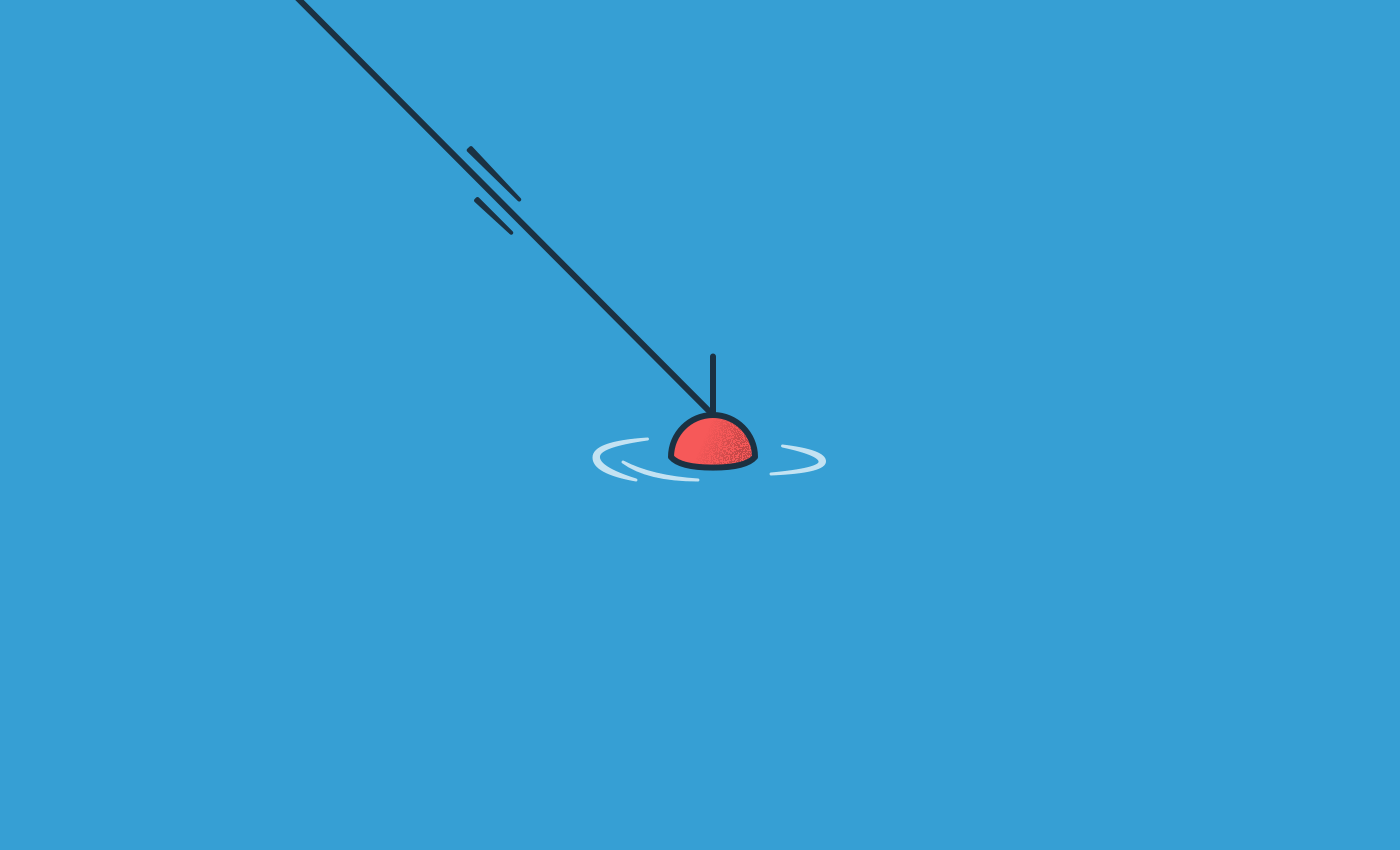Attention span: why your attention is like a fishing line
Productivity Creativity
What is the Fishing Line Principle
The Fishing Line Principle is a productivity method with the main goal to help you hold your train of thought for as long as possible until you get to something concrete.
The basic principle of the Fishing Line Principle is based on the importance of not being disturbed whilst in the process of trying to come up with new ideas, or any creative process in general.
The name of the principle originates from the fact that the idea generation process can be compared to fishing, and more specifically to the moment a fish takes the bait, is now on the hook and you’re trying to bring it to the shore.
Obviously, it’s always a good idea to not be disturbed when trying to do something, but this is even more crucial during the creative process. So, what’s actually at stake? Why is it so important and what happens if you do get distracted?
Why is the Fishing Line Principle important
If you’ve ever been fishing you know that it’s all about finding the right spot, casting your fishing rod and then starting the big wait. You sit there, patiently waiting and observing your rod, until you see that something got its first nibble and that there is finally some tension on the line: a fish is on the hook! From now on it’s all about maintaining that tension while carefully and slowly reeling in the line to bring the catch to the shore.
The same goes for the idea generation process.
When you try to come up with new ideas, you first need to spend some proper time pondering over the problem. And once you’re onto something, it’s like when you got some tension on that fishing line! Now it’s all about holding this tension for as long as needed to transform that first glimpse of an idea into something more concrete – which in our fishing example equals to bringing the fish to the shore.
If at that very moment, when the idea is finally materializing, you get distracted by something, your tension on the line is lost and the idea might be gone forever.
How to put the Fishing Line Principle into practice
It’s quite simple. Whenever you’re trying to come up with a new idea, trying to work out a solution to something or doing any creative work in general, make sure beforehand that nothing will disturb you.
- Allocate proper time for thinking and doing some deep work, and let others know that you won’t be available during this time.
- Retreat to a space where you can be undisturbed for as long as needed and tune out any potential distraction with background sounds.
- Make sure every possible notification is turned off.
This means basically doing three main things:
Of course, no setup is ever perfect and it might still happen that something will slip through and try to get your attention. In such cases, try to resist the urge to give in to such distractions and finish your thought process in a way, e.g. noting down your thoughts, so that you can easily and effortlessly pick it up again later.



